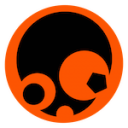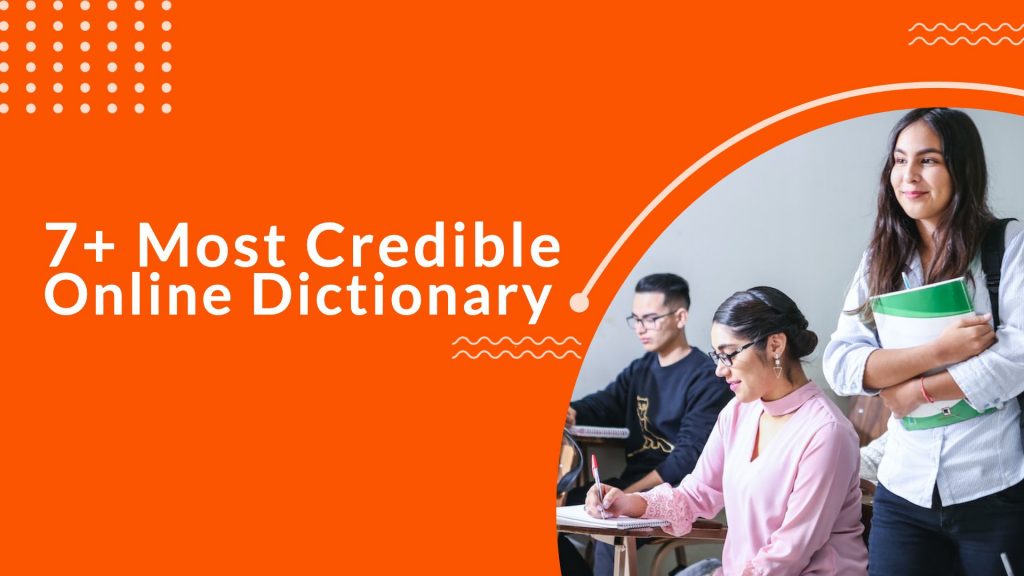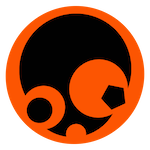Using a credible online dictionary is essential when looking up unfamiliar words or phrases. The source used to define words should be reliable, as incorrect information can lead to misunderstandings and confusion. If a user relies on an unreliable or non-credible dictionary, the results could be dangerous.
When using an uncredible online dictionary, there is no guarantee that the definitions provided are correct. This may lead to someone incorrectly interpreting a word or phrase and consequently believing false information. This can result in miscommunication and errors in critical thinking processes. Additionally, even if the definition provided is accurate, it may not be comprehensive enough for certain contexts; relying on such dictionaries could leave one ill-equipped to understand more complicated concepts within their field of study.
Definition & Purpose of a Dictionary
A dictionary is a reference tool that provides definitions for words and phrases. It is an essential resource for anyone who wishes to improve their language, expand their vocabulary, and gain clarity on the meaning of words. Having access to an online dictionary can be especially beneficial in this day and age of digital communication.
The purpose of a dictionary is to provide users with precise and accurate information about the meanings of words, as well as other related details such as etymology, synonyms, pronunciation, sample usage, etc. A good online dictionary should also offer ease-of-use features such as autocomplete suggestions and other search filters that help users quickly find what they are looking for. In addition to helping learners master new words or look up unfamiliar terms, dictionaries can also serve as a valuable source of knowledge for writers and editors who need guidance on the correct usage of language.
Online Dictionaries Online dictionaries are a great resource for anyone looking to expand their vocabulary and keep up with the modern lingo. With so many online dictionary options available, it can be difficult to determine which ones are credible. In order to help readers find the best sources for reliable definitions of words, this article will discuss 7 of the most credible online dictionaries currently available.
These reputable sites offer clear definitions that students, teachers, and professionals alike can trust for academic writing and everyday use. Furthermore, these online dictionaries have been thoroughly reviewed by experts in language and linguistics in order to ensure accuracy in their coverage of words from different languages. Readers can rely on these sources as they look up definitions or translations of unfamiliar terms. From English to Spanish to French and more—the possibilities are endless when using these top-rated digital dictionaries!
1. Merriam-Webster
Merriam-Webster is one of the oldest, most widely used online dictionaries. Founded in 1828, Merriam-Webster has been providing language learners with a comprehensive source of definitions and etymologies for over two centuries. With an extensive library of words and phrases from across the English-speaking world, Merriam-Webster is a great resource for anyone looking to expand their vocabulary. Additionally, this dictionary includes new words that are added each year to ensure its relevance.
The user interface of Merriam-Webster is simple and easy to use. It contains an intuitive search function that allows users to quickly find what they’re looking for with just a few clicks.
Pros:
1. Comprehensive definition of words and phrases.
2. Easy search engine for quick look-up.
3. Word of the day feature offers insight into new words and their usage.
4. Includes pronunciation guides and audio pronunciations for thousands of words in the online dictionary.
5. Allows users to save favorite words for future reference.
Cons:
1. Subscription required to access the full version of the online dictionary beyond basic definitions and synonyms.
2. Not always up to date with current language usage and trends in English, especially in modern slang or tech terminology.
3. No visual features like images or videos that might help explain certain concepts better than written definitions alone can do so.
4. Does not include translations into other languages apart from English, making it hard to use as a study aid or reference tool while learning a language other than English.
5. Can be difficult to use
2. Cambridge Dictionary
For those looking for a comprehensive and reliable online dictionary, Cambridge Dictionary is the perfect place to find it. Cambridge Dictionary has over 100 years of experience in providing accurate definitions for words and terms, making them one of the most credible sources out there. The dictionary is available in both British and American English versions, giving users access to up-to-date colloquialisms from both countries. It also offers audio pronunciation guides for each word so that you can hear how a particular word should sound like when spoken correctly. Additionally, they feature usage notes with examples on how certain words should be used in particular contexts. With its easy navigation system and useful features, Cambridge Dictionary makes it easier than ever to find the right definition quickly.
Pros:
1. Comprehensive selection of words and definitions.
2. Easy to use online interface.
3. Variety of pronunciations and examples given for each word.
4. Ability to search for words in different languages and dialects.
5. Regularly updated with new words and definitions.
Cons:
1. Limited number of example sentences provided for each word.
2. Not all entries are accompanied by a pronunciation guide or audio recordings of the word being spoken out loud.
3. No clear distinction between British English, American English, Canadian English, etc., which can lead to confusion when using the dictionary for language learning purposes.
4. Does not offer any other resources such as grammar lessons or writing tips that are often found in more comprehensive dictionaries like Oxford or Merriam-Webster’s dictionaries..
5. Requires an internet connection in order to access the dictionary’s features and use it
3. Oxford Dictionary of English
The Oxford Dictionary of English is one of the most trusted and comprehensive online dictionaries available. It offers more than 350,000 words, phrases, and definitions as well as in-depth etymological information for each word. This dictionary is ideal for those who are looking to expand their vocabulary or research a specific topic.
The website also provides usage notes on frequently used words which can be helpful if you’re trying to understand how to use a particular word correctly in different contexts. Additionally, the Oxford Dictionary of English has a searchable thesaurus that makes it easy to find synonyms or related terms quickly and accurately. The vast collection of example sentences help users become more comfortable with using unfamiliar words in everyday conversation. With its simple layout and intuitive navigation system, this online dictionary is an invaluable resource for language learners and writers alike.
Pros:
1. It is constantly updated with new and modern words.
2. It includes many different language options.
3. Its audio pronunciation feature is helpful for word learning.
4. It provides example sentences for each word to clarify its usage.
5. Its search engine quickly finds the exact definition you are looking for.
Cons:
1. It requires an internet connection to use it.
2. The basic version only gives limited access to core features, such as examples and audio files.
3. Subscriptions are required for additional features, such as synonyms and etymologies of words, which can be expensive for some people to access them all at once.
4. Some complex words may not have a definition or example sentence in the database yet due to the ever-evolving nature of language making the Oxford Dictionary online not always up-to-date with current terminology and slang usages in English language
4. Collins Dictionary
The fourth most credible online dictionary is Collins Dictionary. This free online dictionary has been used by millions of people all over the world since it was founded in 1979. It offers detailed definitions, synonyms, and related words for a range of topics including science, business, technology and medicine. Additionally, Collins Dictionary also provides audio pronunciations to help users learn how to pronounce words correctly. Furthermore, its user-friendly interface makes navigation easy and efficient as users can quickly search for words without any hassle. The website also features a helpful ‘Word of the Day’ section which helps readers broaden their vocabulary knowledge on an everyday basis. Finally, if users are looking for something more than just definitions then they can check out the associated blog posts which offer fun facts about various English language topics such as grammar rules or slang terms.
Pros:
1. It is easily accessible online, meaning it can be used anywhere with an internet connection.
2. It is free to use and no registration is required.
3. It contains a vast selection of definitions which are updated frequently.
4. It provides synonyms, antonyms and other related words for each definition.
5. It has an intuitive user interface which makes searching easy and accurate results quickly available.
Cons:
1. There are sometimes inaccurate or incomplete definitions given due to the sheer volume of data that must be processed correctly.
2. Some features may not be available in all regions due to licensing restrictions or other reasons specific to that region or country.
3. Not all words are included in the database, so users may not find what they’re looking for if their search term is too obscure or specialized for Collins Dictionary’s database.
4. The interface can become cluttered and difficult to navigate when too
5. Wiktionary
Wiktionary is an online dictionary and thesaurus that has become increasingly popular in recent years. It was started in 2002 as a collaborative project of linguists and language enthusiasts who wanted to create a free, multilingual dictionary with definitions, etymologies, pronunciations, translations and more. Its primary purpose is to link words from different languages together so users can easily find out how they are related or translated between languages.
Since its inception Wiktionary has grown exponentially and now contains millions of entries spanning many different languages. It’s frequently used by linguists and students studying foreign language as well as everyday people who want to quickly look up a word or phrase without having to go through several pages of results on Google. Thanks to its multilingual nature it also allows for comparisons of words across multiple languages which is invaluable for research purposes.
6. Macmillan Dictionary
Pros:
1. It is a comprehensive online dictionary with definitions covering a wide range of topics, including slang and technical terms.
2. It offers translations in multiple languages, making it an ideal tool for language learners.
3. The definitions are easy to understand and can be accessed quickly by searching or browsing the site.
4. Its usage examples help users understand how words are used in context.
5. Wiktionary is regularly updated with new information, so users can benefit from its latest entries.
Cons:
1. Users must rely on the accuracy of other contributors, who may make mistakes or add incorrect information to entries.
2. Some entries may lack sufficient detail and may not provide enough information for certain topics or tasks.
3. There is no guarantee that all words will have an entry in Wiktionary; some words may not be included due to their obscurity or rarity of use.
4. The site may include offensive language and may not be suitable for children.
Wiktionary is a free, open-source dictionary website that provides definitions of English words in many languages. It is the product of the Wikimedia Foundation, a nonprofit organization based in San Francisco, California.
7. Thesaurus.com
The internet has become an invaluable resource for finding the definition of words. However, many people are unaware of all the online resources available to them. One of the most credible and reliable sources for quickly understanding new words is Thesaurus.com.
This online dictionary offers users a comprehensive list of synonyms, antonyms, related terms and even example sentences that help users gain a better grasp on how to use these words in their everyday conversations or written works. What sets it apart from other online dictionaries is its ability to offer more than just definitions; it provides insight into language by exploring its nuances and subtleties through word comparisons, opposites and different levels of intensity – from casual speech to formal writing.
Pros:
1. Easy to search and find words quickly
2. Comprehensive list of synonyms and antonyms for a given word
3. Word Origins feature to understand how a given word was formed
4. Audio pronunciations to learn how to correctly pronounce unfamiliar words
5. Detailed etymology information for added context
Cons:
1. May not have the most up-to-date modern meanings
2. Not all words are included in the dictionary
3. Limited ability to sort through results due to lack of advanced search features
4. Some times there are no examples provided of given words being used in a sentence
5. Limited quizzes or interactive learning activities
Dictionary.com
For those looking for a reliable source of information on words, Dictionary.com is the go-to destination for millions of people every day. With its comprehensive range of definitions, usage examples, and pronunciations, it’s no surprise that Dictionary.com has been called one of the most credible online dictionaries available today. It provides users with access to an impressive database containing more than 3 million entries from traditional and contemporary sources around the world. The website also offers an array of other resources like language quizzes, grammar guides, word games, and etymological exploration tools to help users brush up on their language skills or delve into the history behind various words and phrases. Whether you’re searching for a quick definition or researching how language has evolved over time, Dictionary.com is your go-to source for trusted answers whenever you need them!
Pros:
1. It is easy to use, allowing users to quickly look up the definition of words.
2. It provides multiple definitions for many words and phrases, allowing for a better understanding of the usage and context of each word.
3. It offers examples of usage for many words and phrases, helping to further clarify their meanings.
4. It has an audio feature that allows users to hear the pronunciation of certain words and phrases.
5. The website also includes a thesaurus feature, which can be helpful if users are seeking a synonym or antonym of a term they are looking up.
Cons:
1. Some definitions provided may not be completely accurate or up-to-date with current usage and language conventions in certain contexts or regions.
2. The search engine used is sometimes slow and difficult to navigate when looking up more obscure words or phrases.
3. Not all audio pronunciations are accurate.
Conclusion: Best Online Dictionaries
The conclusion of our review of the 7 most credible online dictionaries is that all of them are great tools for language learners and researchers alike. Each dictionary offers a unique set of features and appeals to different types of users. Some emphasize the basics, while others focus on more advanced features such as idioms, synonyms, and etymology. All of them have their own strengths and weaknesses but overall provide an excellent resource for looking up words with accuracy and precision.
In conclusion,the best online dictionaries are those that offer comprehensive definitions, examples, and synonyms. They should also be easily searchable and provide audio pronunciations for words. It’s important to understand the difference between free or open-source dictionaries and those that require a subscription or fee. Free resources may not have all the features of a paid dictionary, but they still can be helpful in understanding the meaning of words. Ultimately, the best online dictionary is the one that meets your specific needs.
Let’s stay connected **
My website: WPGOSOCIAL.com is a web development and marketing company. We specialize in helping Small Businesses develop credibility and brand awareness.
Quora: Question and answer with Romeo Clennon founder of WPGOSOCIAL.com; about web design, web hosting, marketing, SEO and more.
Pinterest: For marketing infographics, funny videos and more.
Stop by just to say hi, or come check out the great content on our other platforms.




